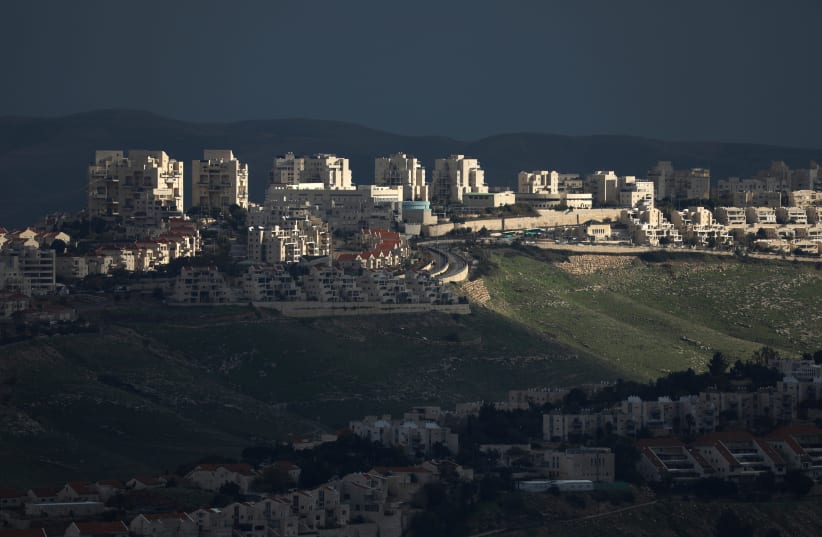Plans for a large-scale garbage incineration plant at the Good Samaritan junction, past Ma’aleh Adumim on the road to the Dead Sea have local residents up in arms.
They claim that the facility will harm air quality and clog the roads with hundreds of trucks from around the country bringing garbage to the site.
They also claim the project was not planned with any transparency, and was being pushed forward because it benefits the Ma’aleh Adumim Municipality financially.
“I’m very worried,” said businessman Roei Hooja, who has lived in Ma’aleh Adumim for 37 years. “I’m worried about the air quality and about my children’s health.”
“Why can’t they put it in a hole in the desert somewhere?” asked Hooja. “Because then Ma’aleh Adumim would not be getting a lot of money.”
The environmental impact of the incinerator, including air quality and its effect on people’s health, has not yet been evaluated by an independent body, a situation that has caused alarm to Hooja and to hundreds of residents who recently voiced their fears on Ma’aleh Adumim’s Facebook page.
Some residents, including people who live in the nearby communities of Kfar Adumim and Nofei Prat, have petitioned the Supreme Court for an emergency injunction; their request will be heard in May.
The Environment Ministry announced a long-term plan for waste management in January and said it was canceling plans to build incinerators around the country as part of a revamping of its recycling plants. However, the proposed incinerator plant near Ma’aleh Adumim was not canceled, apparently since it is over the Green Line.
The issue has brought together a disparate group of 13 MKs who oppose the initiative until the health aspects can be thoroughly and independently investigated. These Knesset members, led by Matan Kahana, include Bezalel Smotrich, Moshe Allon and Ayelet Shaked, as well as Culture Minister Chili Tropper and Diaspora Affairs Minister Omer Yankelevich, who signed a petition last week.
Their petition reads, in part: “The above-mentioned waste incinerator is planned to be built in dangerous proximity to local residential areas, schools, tourist and heritage complexes... Although it is the first incinerator of its kind in Israel, on a scale larger than 95% of incinerators in Europe,” it is being built with technology about which there is not enough data to determine its long-term effects.
IN EARLY January, Prof. Itamar Grotto, deputy director of the Health Ministry, sent a letter to David Yahalomi, the deputy director of the Environmental Protection Ministry, saying that there was potential risk of carcinogens leaking into the air and recommending that the ministries set up a joint project to investigate its potential effects.
Fleur Hassan-Nahoum, Jerusalem deputy mayor, said she was concerned about the incinerator because of its proximity to Jerusalem – it would be just 10 kilometers from the Hadassah Mt. Scopus Medical Center – and because it must be evaluated by an entity with no financial interest before it can be determined whether it is safe.
“Jerusalem would be the main client for the incinerator,” she said. But the Jerusalem Municipality could not promise to sign off on sending its waste to this incinerator because “the health and environment report was being done by the same people who were planning the incinerator,” she said. Without an independent report and a clean bill of health, Jerusalem would not consent to use the incinerator.
But Dr. Nitsan Levy, director general of the Municipal Association for Environmental Quality: Judea, as well as being chairman of the Israeli Forum of Local Governments’ Environmental Administration – who is authorized to speak about the issue on behalf of the Ma’aleh Adumim Municipality – said he felt the objections to the incinerator were overblown.
“We already know it won’t have any impact on air and health,” he said, although he noted that research was still being conducted. He insisted that residents’ objections are a classic case of the NIMBY syndrome – not in my backyard. Levy said that the facility would keep hundreds of trucks hauling garbage to landfills off the roads.
As of Sunday, there was no reference to the incinerator – or any meetings about it – anywhere on the Ma’aleh Adumim website. The municipality did create an animated film about the benefits of the incinerator and held a ceremony in which ground was broken for the project in November 2019, featuring MK Zeev Elkin, in spite of the fact that the health impact had not yet been investigated.
Sharon Achdut, a representative of Ma’aleh Adumim, said there would soon be a meeting to discuss the matter with concerned English-speaking residents, but that the details had not yet been set because of the lockdown. Levy said he would answer all residents’ questions about the project, but the website did not include his email.
The Finance Ministry and the Environmental Protection Ministry did not respond to requests for a comment.
